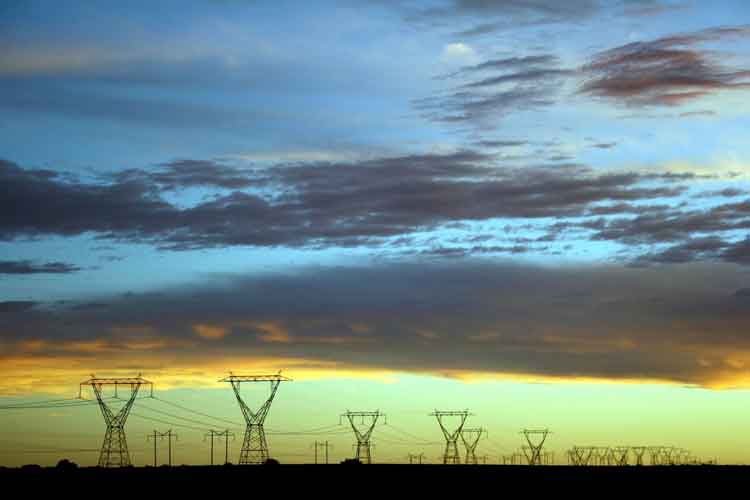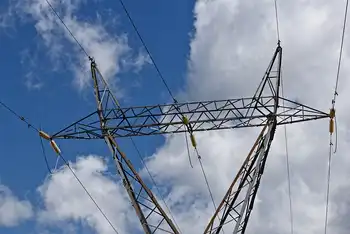Europe looks at going Nuclear
LONDON - - As Europe cools off from a summer heat wave that pushed its power plants to the limit, the nuclear industry is trying to seize a rare opportunity to rehabilitate its reputation and attract new investment.
Nuclear operators have been near-pariahs throughout much of the developed world since the Chernobyl disaster in 1986, especially in Europe. No new reactors have been built in Western Europe since then, and several countries have declared themselves forever nuclear-free, including Italy, which shut the plants it had already built.
The industry has survived only because countries like Germany and France are already too heavily dependent on nuclear energy to scrap it. Even so, operators have tended to keep their profile as low as possible.
Now, Europe has bumped up against the limits of its existing power supply, and the Continent faces tough choices about energy.
The torrid summer of 2003 and the deaths and illnesses it caused, particularly in countries like France, where air-conditioning is relatively uncommon, have prompted industry analysts to forecast sharp growth in electricity use.
But there are a host of constraints on the expansion of the power supply.
The 15 members of the European Union have committed themselves to sharp reductions in their emissions of "greenhouse" gases linked to global warming, notably carbon dioxide, and fossil-fuel-burning power plants are a significant source of those emissions.
Most of Western Europe's potential for new large-scale hydropower development has already been tapped, and countries like Germany and Denmark invested in wind turbines only to discover during the unusually hot, still summer that the wind may not always blow when it is most needed.
That, the nuclear operators say, leaves only one good option: new reactors. Because nuclear plants emit almost no greenhouse gases or other pollutants, industry advocates say, they may be the only way Europe can reliably add to its power generation capacity within the environmental constraints of the Kyoto treaty on global warming.
Critics have long derided that argument, pointing out that it ignores the problems of radioactive waste, the greenhouse gas emissions and other pollution associated with mining and refining uranium, and the heightened safety and security concerns after the Sept. 11 terror attacks.
Also, the European heat wave exposed a previously overlooked vulnerability: the rivers that supply the water used to cool many of the Continent's nuclear plants warmed up so much that plant managers had to choose between cutting back power output or releasing damagingly hot water back into the rivers.
In an effort to soften widespread public hostility to nuclear power, industry leaders who gathered here this month announced the creation of a network of leading research centers and nuclear experts in 30 countries to be called the World Nuclear University.
The intention is to promote scholarship and encourage students to pursue careers in nuclear science, and help to "build the political will for a clean energy transformation," said John Ritch, director general of the World Nuclear Association, a London-based industry group that is one of four organizations sponsoring the initiative.
The sponsors have enlisted Hans Blix, the former United Nations weapons inspector and a former head of the International Atomic Energy Agency, to be the first leader of the network. Mr. Blix emphasized the danger of global warming in a speech at the London conference.
"While I would be the last to underestimate the risk of proliferation of weapons of mass destruction, I think the environmental risks we face are even greater," he said.
Mr. Blix's caution is understandable, given the passions that nuclear energy arouses in Europe, for and against, often in close proximity.
France depends on nuclear reactors, 59 of them, for more than three-quarters of its electricity, and while it has not added a reactor since the year of Chernobyl, it has resisted calls to curtail their use.
Related News

How Canada can capitalize on U.S. auto sector's abrupt pivot to electric vehicles
TORONTO - The storied North American automotive industry, the ultimate showcase of Canada’s high-tensile trade ties with the United States, is about to navigate a dramatic hairpin turn.
But as the Big Three veer into the all-electric, autonomous era, some Canadians want to seize the moment and take the wheel.
“There’s a long shadow between the promise and the execution, but all the pieces are there,” says Flavio Volpe, president of the Automotive Parts Manufacturers’ Association.
“We went from a marriage on the rocks to one that both partners are committed to. It could be the best second chapter ever.”
…



